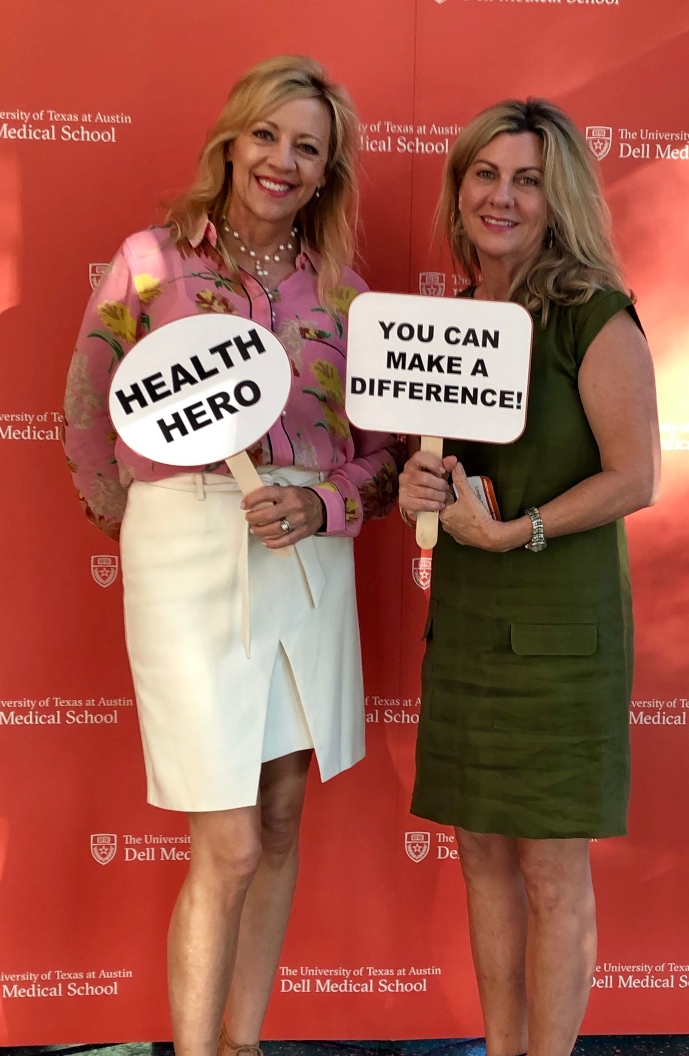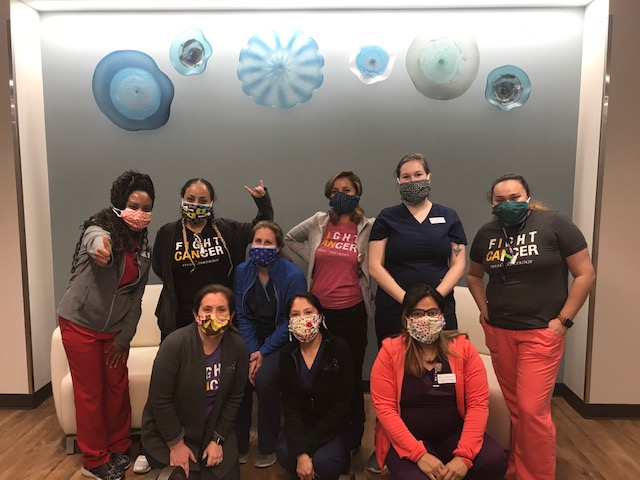Nonprofit organization Regarding Cancer believes no one should ever have to face cancer alone.
ByDiana Dobson, Photos courtesy of Regarding Cancer
“You have cancer.” No matter the stage, whatever the diagnosis, those three words can stop time in its tracks. When a patient gets diagnosed with cancer, they and their loved ones try to grasp how they will rearrange their lives in the short-term while processing the uncertainty of the future. During an intense schedule of follow-up appointments, they learn about their diagnosis, prognosis and plan for treatment, which could include chemotherapy, surgery, radiation—or all three.
A cancer diagnosis can generate a thousand feelings: fear, confusion, anxiety, distress, despair, depression, anger, hopelessness, frustration. The first few weeks after diagnosis are particularly challenging. Many patients have trouble thinking, eating or sleeping as they wrestle with the enormity of the diagnosis. With each diagnosis comes the need to understand the disease and treatments. To cope with emotions, manage disruptions and mood disturbances, financial stress, changes in role, spiritual concerns and the many other psychosocial problems that arise.
Regarding Cancer believes that no one should face cancer alone.
If you’re comfortable, can you tell us a bit about your experience as the daughter of a cancer survivor?
At the time my father was diagnosed with prostate cancer, my mother had beginning stages of dementia and was not able to drive him to doctors’ appointments and radiation treatments in San Antonio. Living in a small town in South Texas, each daily radiation appointment involved an hour of driving each way. Thank goodness my three sisters and I were able to take time off from work and our families to help. Not all cancer patients have this option. Also, living in a small, rural community where there were no resources available to help with his cancer care proved to be a challenge.
Two years ago, my sister in Dallas was diagnosed with colon cancer. Luckily, her diagnosis was caught at an early stage. Given my current role at Regarding Cancer, I was able to assist her with finding an oncologist she was comfortable with to prescribe her cancer protocol. This involved chemotherapy treatment every three weeks in addition to cancer drugs. I tried to attend each of these treatments with her at Texas Oncology/Baylor Scott & White. I have seen firsthand how difficult and scary it is for cancer patients to sit, more often than not, by themselves for hours, in a chair in a cold room with no one to talk to, no one to assist them with food/beverages or no one to assist them to the restrooms while attached to many chemo drip lines.
How did your experience as the daughter of a cancer survivor influence your work with Regarding Cancer?
When given the opportunity to work for Regarding Cancer, I was encouraged to take on the role to help other cancer patients and their families get the help, resources and support they need just like my father and sister received.
How did you meet Program Director Linda Richards? And how did you two decide to begin working together?

Linda Richards and I met almost 20 years ago when our daughters attended Casis Elementary School and were in the same first grade class together. Since then, Linda and I have been “partners” in many school fundraisers, numerous charity event fundraisers in Austin and social justice events. Linda was the first person hired to run the Regarding Cancer program over five years ago. I was originally hired, thanks to Linda’s recommendation, as the development director for Regarding Cancer. A year later I was promoted to executive director.
Can you give us a brief idea of what Regarding Cancer does?
The Regarding Cancer mission is to provide free psychosocial support and resources to cancer patients and their caregivers in the Central Texas area by matching newly diagnosed patients with a peer who’s survived the same type of cancer or a caregiver of cancer patients. We provide support from 278 volunteers who themselves have survived a cancer diagnosis or have been a caregiver for a loved one with cancer. Following a three-hour training, volunteers become mentors in one-on-one mentoring relationships based on cancer type.
Beyond helping the patients referred to the support program, our volunteers benefit from providing the service as part of survivorship.
Regarding Cancer provides firstly support for emotional and social concerns through diagnosis, treatment, recovery, survivorship and advanced disease; secondly an education on what to expect with treatment and guidance on how to navigate difficult decisions; and lastly the hope gained through fellowship with others experiencing the same journey.
Our organization serves anyone 18 years and older at any stage of cancer, including those facing death, and support for loved ones of those who have lost their battle with cancer. All of our programs are available for people across the cancer continuum, from the time of diagnosis, during and post-treatment and survivorship.
What has been the most rewarding aspect of being a part of Regarding Cancer?
The most rewarding part of working for Regarding Cancer is getting to witness so many wonderful people who are going through the toughest time of their lives be united with a survivor. At the heart of what we do are the stories of the people we serve. They remind me of the importance of our work. We are honored to witness the impact Regarding Cancer volunteers can make on those touched by this horrible disease.
What are your aspirations for the future of Regarding Cancer?
It is our belief that everyone should have access to the resources they need to manage their life beyond a cancer diagnosis—free of charge—regardless of their type of cancer, where they live or their financial situation. Our vision is to establish Regarding Cancer as the gold standard of psychosocial support for people affected by cancer in the Central Texas area and to expand our program into other regions of Texas.
For those living with cancer or who know someone living with cancer, what words of encouragement would you like to give them?
I do not understand why the word “cancer” holds such a huge stigma and fear for talking to and helping cancer patients. This needs to change. A diagnosis of cancer can make a person feel removed from everyday life. It can be a time of awful, overwhelming loneliness and a time of feeling out of control. Sometimes the most moving words the sufferer wants to hear are the most basic: “I’m here for you. Let me know what you need.” Saying that and meaning it may be the most incredibly important act of kindness you’ll ever do for someone. Your words may be exactly what it takes to motivate someone to get through another day of treatment, one day at a time.
Sometimes the right thing to say to a person who has cancer is nothing at all. Let the individual scream, shout, punch the wall, shake a fist to the sky, whatever helps. Listen to what the person has to say without judgment and make sure the individual knows that you’ll always be there, no matter what. Knowing that someone has their back through the roller coaster of their cancer diagnosis and treatment can be a great comfort.

This is an example of the many letters we receive from those we serve:
“Hi, this is Jayne writing on behalf of both Gabi and myself. The volunteers you put us in touch with have been amazing resources. Thank you so very much from the bottom of our hearts for getting us in touch with people who have been there. Your service is amazing and of priceless value to us. If it weren’t for COVID I’d hunt you down and give you a big hug. It’s been such a relief to know there’s people to talk to while waiting for the results between surgery and chemo. Thank you so very much for all you do; it’s made such a huge difference in our lives in such a very short amount of time.”
To learn more visit our website.



1 Comment
pastillas priligy en mexico Monitoring includes blood tests for hemoglobin and kidney and liver function, as well as scans